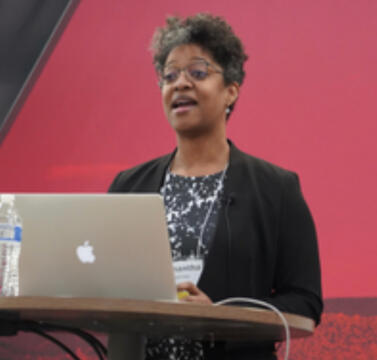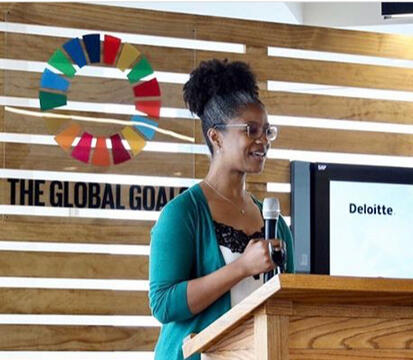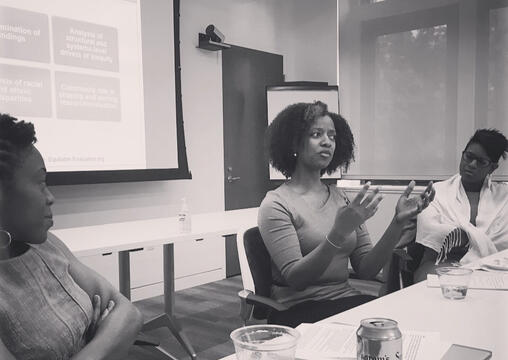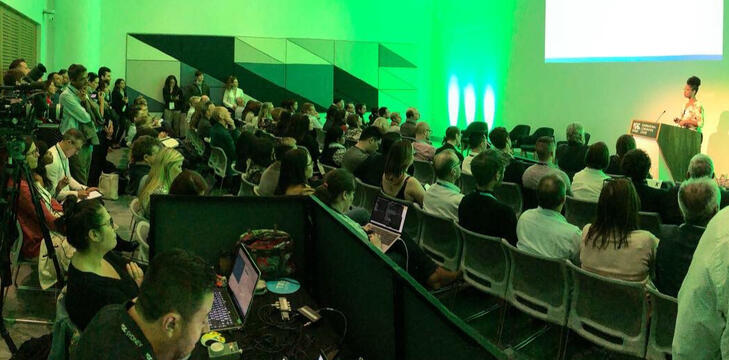
Hi, I'm Samantha!
I repeatedly hear parents say that navigating education feels like The Hunger Games.
They're not wrong.
And … the odds will never be in your favor given how the world around us is going.So, what does this mean for your high-ambition parenting work?In the context of an economic system that concentrates power and wealth and a society that produces destructive levels of conflict and competition, it is now more timely than ever that your thinking and decision making be informed and empowered by understanding how education operates within this system—a.k.a. knowing how education actually works.Especially at this stage of American capitalism, it’s not enough for your child to get an objectively good education—it needs to be a better education than someone/everyone else’s. And of course your instinct is to seek out the best education you can afford. This is because the economic inequality and insecurity that we see all around us is designed to make you afraid for your child’s future if you don’t play to win.That means you have to figure out how to compete in a system that actively pits you against every other parent (and pits your child against every other child) ... exploiting the very insecurity it creates.This looks like a generation of parents investing heavily to outmaneuver other families in a high-stakes, winner-take-all “game” that no one asked to play and that is impossible to truly “win.”But, play you must.Growing up, I thought I could “fix” education—bless my heart.That was because I saw and experienced the inequities firsthand and thought surely everyone wants to see all kids succeed, right? So, I went to the fancy schools, earned the fancy degrees, and forged ahead with my mission-driven career.In time, I learned that the education system isn’t broken and that the playing field isn't going to be leveled. I also realized that our belief in the American Dream persists because we misunderstand how systems actually work.Most of us are never taught how power, policy, economics, or ideology shape our lives.
Instead, we're taught how to perform inside systems—not how to see them or how to question them.Education is the American Dream's pusher.
It sells the promise of mobility while quietly enforcing the reality of hierarchy.And for as long as the system remains intact and unchallenged, the odds will never be in your favor. But that's the good news.
Are you ready to challenge the system?
You are the architect of your child’s education.
I help parents like you find your footing inside systems designed to keep you off balance.I want you to have the tools you need to ask better questions so that you feel more confident making decisions for your child's education (and their future) ...with the right-for-you strategy you need to improve your odds.
Read the essay:You Didn't Volunteer Your Child As Tribute
(aka "The Hunger Games Essay")
Free Audio Resources:Guest Podcast: Ep 12. Planning Your Child's Education with Intention and Strategy on SpotifyParent Roundtable Discussion + Q&A on Soundcloud

Hi, I'm Samantha! As an Education Strategist and Coach, I help you understand and strategically navigate the education system so that you can make the best decisions for your child's success.I am accepting new 1:1 clients to work with me for up to 6 months.
Or, you may prefer a faster solution: 1-Day+ Strategy Intensive.With both options, I'll guide you through the foundational vision and goal-setting work to create your personalized strategy and decision-making framework.
Samantha A. Murray, M.S.Ed.Samantha is the founder and CEO of SAM Catalysts. A leading expert and thought leader in education strategy, she has served as a trusted strategist for executive education leaders and has spoken at major education conferences and events across the US, and in Sydney and London. She's the creator of the Education Strategy Parent Academy, a program that teaches parents how to develop a strategic plan for their child's K-12 education.President Barack Obama once invited her to sit down for a one-on-one conversation about education before introducing him to an audience of 10,000—he now follows her on Twitter.Samantha is a 1997 graduate of St. Paul's School for Girls, where she was a 3 sport varsity athlete, is an Athletic Hall of Fame inductee, and is the school's first Black Wagley Scholar. She earned her A.B. in Public Policy Studies at Duke University, her M.S.Ed in Education Policy from the University of Pennsylvania Graduate School of Education, and a certificate from the Center for Education Policy Research at Harvard University. Samantha believes that Badminton is the best sport ever, loves making risotto, and is excited to be working on two book projects.
Parent Reflections"I feel like I've gotten clarity on what's important, why, and in order of priority. And because of that, I can make more informed decisions. I appreciate you. This has been a great experience for me." (mom of a toddler)"The time is now to begin these conversations. Overall, I want to feel prepared, confident, and comfortable; I want to make sure that we are as intentional as possible. Can this be a weekly class?"
(mom of a toddler and an infant)"We for sure want to get it as right as we can." (dad of 2 toddlers)"As a parent, and as a single parent, I wish I had someone help me navigate my child's education so that I could direct them along the right path. So, focusing on the strategy is tremendous because then parents like me can have a level head and a clear mind about what we want for our children. Helping us focus on the broader picture is where you come in, Samantha. And I thank you for that." (mom of adult children)
Free Audio ResourcesGuest Podcast: Ep 12. Planning Your Child's Education with Intention and Strategy on SpotifyParent Roundtable Discussion + Q&A on Soundcloud
You Didn't Volunteer Your Child As Tribute
(aka "The Hunger Games Essay")
Samantha A. Murray, April 2025
First public draft
I wrote this essay because I've heard so many parents reference The Hunger Games when they talk about navigating their child's education. I'd love to explore these ideas together. If you have any reactions you're willing to share—emotions, questions, ideas, counterpoints—don't be shy!...Thank you to Angela Murray, Regina Anaejionu, and Amber Beckett for reading early versions, discussing ideas, posing smart questions, and providing formative feedback. Thank you to many others who have reacted to the ideas and commentary that I've shared across my social channels. Thank you to the parents who have shared their experiences and entrusted me as a partner in their thinking.
Welcome to the Arena
Education today feels like The Hunger Games.
Because it is.If you’re not among the wealthiest or most politically powerful in America’s version of capitalism, the system feels increasingly dystopian.You’re trying to survive it, and ... trying to help your child survive it, too.In The Hunger Games, the children don’t volunteer. They’re selected. Forced into an arena where only one child “wins” by killing off her competition … while the most powerful watch from above, controlling every aspect of the game. And it’s not just the violence that makes it dystopian. It’s the design.Our education system mirrors that design.You don’t get to opt out. Education is legally compulsory. You’re required to participate. Yet nothing guarantees that the system will serve your child fairly, or even adequately. And if your child struggles or fails? The system absolves itself while you shoulder the blame, the shame, and the pain.That’s in part because we were sold a seductive narrative: that we’re free to shape our futures, that hard work is the key, that education is the answer, and that those who succeed deserve their elevated position.And that’s the system’s most brilliant, and brutal, ideological trick: you’re forced to play a rigged game, in a rigged system, and then held personally responsible for the outcome.So … of course you’re strategizing. Of course you’re stressed. Of course you're scrambling to secure any advantage. That’s what parents have always done in a system that structurally gaslights you into feeling grateful for “agency” and “choice”—as long as you believe that opportunity through elbow-sharp competition is normal.Cutthroat admissions.
Years long waitlists for preschool.
Skyrocketing tuition.
Public schools sorted by property values.In this era of extreme wealth inequality, those with means disproportionately invest in their child’s education because they know the game isn’t fair. That’s why so many of the decisions parents make about school that are, on the surface, about academics or values ... are actually strategic decisions for economic survival.While most of us are negotiating harm, trying to outwit inequality, and doing risk management with our kid’s future, the ultra-wealthy aren’t competing at all.They’re writing the rules.And may the odds be ever in your favor.
Is This Essay For You?
This essay is for anyone—and especially for parents—trying to make sense of education while feeling the emotional, psychological, and financial weight of the systems shaping our lives.This essay is for anyone feeling a sense of powerlessness, yet trying to smartly hack your way through.This essay is for anyone observing the pressures bearing down on families today.This essay is for you if you know that not everyone can rise to the top in a hierarchical society … but you haven’t had the language to describe all of this 💩.Consider this: Education is not neutral—it has a job to do.It is an institution that was intentionally designed to reproduce inequality and exploit the insecurity it creates. By examining how education operates within our socioeconomic system, we can better understand the ways inequality and insecurity shape our lives, our choices, and—most personally—your children’s futures.My goal is that this essay does more than validate what you already feel. I want you to be able to: see the system more clearly, articulate what's happening to you and your family, and sharpen your instincts.Because knowing the game is the first step to playing it differently.
The Weight of Inequality
The contour of economic inequality in America is clear.Parents today are navigating a system where capitalists extract wealth from workers at historic levels, yet you are still expected to compete for education as if the playing field were fair—not just to try to outpace the growing economic divide, but to avoid slipping irreparably behind.This reality presses you to organize your life around economic survival.You feel the weight of inequality every time you consider an impossible tradeoff—whether to dip into savings for tuition, take on a second job to cover enrichment activities, move neighborhoods to access a particular public school system, take on extra debt, or pause your retirement savings. Each of these decisions reflects the quiet economic coercion of a system predicated on inequality.What’s worse, families on the lower end of the income distribution, who are barely able to make ends meet (if at all), are technically competing, too. They’re “in the game,” but the way the game is played all but guarantees that they’ll lose, relegating them to the poorest quality schools. That’s the cruelest part.At the risk of stating the obvious: the ultra wealthy will always be able to outspend everyone else—securing the best schools, the best tutors, the best networks. And yet, you’re still forced to play the game, a brutal, winner-take-all battle. The cost of losing? Your child’s future and the internalized moral failure and guilt that comes with each "mistake" or any misfortune you encounter. This is the real-life Hunger Games.That’s heavy.
That’s the weight of inequality.
The Numbers Don't Lie
America is living its best capitalist life.We’re in what Heather McGhee calls our Inequality Era. The economic forces shaping how you think about your child’s education are not incidental, and they’re not temporary.The pressure is visceral. You talk about it every day. Your friends feel it. Parents in the group chat feel it. It’s exhausting, it’s stressful, and … it’s by design.But you don’t just feel this inequality—it’s measurable.
The top 1% of earners now hold more wealth than the entire middle class combined. The gap between top earners and middle-class families has never been wider.
Dubbed “the generation of unequals,” the millennial generation is one of the most economically divided. This gap showed up for them at birth, with Boomers expecting to pass $27 trillion in wealth to millennials.
Capitalists have siphoned $2.5 trillion per year from American workers since 1973 by shifting economic gains away from wages and toward corporate profits.
The cost of raising a child to age 18 now exceeds $300,000—not including college. Parenting has always required sacrifice, but this level of financial burden forces parents into constant economic calculation.
The cost of elite college education is spiraling out of reach. At the time of this essay, Duke University’s tuition is expected to exceed $90,000 per year. That’s nearly half a million dollars for an undergraduate degree.
Children born in the mid-1980s have only a 50-50 chance of doing better than their parents. Upward mobility—the thing we’ve been taught education provides—is collapsing in real time.
The 19 wealthiest Americans in 2024 held $3.1 trillion in collective wealth—2% of the entire country’s resources. Meanwhile, the United States has the highest poverty rate in the developed world among OECD nations.
Even full-time work is no guarantee of stability—half of adult workers in the U.S. are paid too little to meet their basic needs.
These stats aren't accidents of capitalism.They are attributes of a socioeconomic system built on hierarchy. And the more that resources are hoarded at the top, the more desperate the fight for what’s left becomes.As esteemed political economist Clara Mattei reminds us, “People feel the economic violence on their own skin and have (few) tools to explain what’s going on."Parents know this reality. It’s playing out in their own lives, which explains the crushing pressure to ensure their kids have a competitive edge in the labor market.For most families, education represents their best hope for survival.
A Rigged Game:
Education as a Positional Good
Education isn’t just about opportunity—it's about position.The reality is that education functions less like a universal pathway to success and more like a high-stakes auction, where families with the most resources spend increasingly more to secure the best advantages for their children.What does this mean for you?Well … if you’re a family that can realistically hope to compete with the top 1%, for example, then you’re going to feel the most pressure to spend more on your child's education. That’s because what’s happening at the income level above you leads to what’s called expenditure cascades. You’ll consider pouring every available resource into securing a competitive edge for position, triggering a similar response for those below your income level.It’s why preschool admissions are treated like Ivy League applications. It’s why elite college counseling is a booming industry. It’s why test prep, extracurriculars, and private tutoring have become baseline investments—table stakes, if you will—rather than optional extras.This explains why, in a society as grossly unequal as ours, education functions as a positional good. This is why elite degrees don't just signal for intelligence or effort ... they signal status and scarcity.And scarcity, in capitalism, is always profitable.But this isn’t about the size of the income and wealth gap. It’s about what the gap forces us to do in order to survive. It's about how education is the arena where those tensions play out most personally.
The Psychological Toll:
Internalizing the Logic
The economic pressure parents feel is undeniable—but the psychological impact runs even deeper. The system doesn't just force parents into competition; it shapes how they see themselves and their children’s futures.Fear and anxiety: Parents aren’t just worried about giving their kids an advantage; they’re terrified of what happens if they don’t.Moral conflict: The same system they may critique as exploitative is the one they feel forced to participate in.Identity and status: Education isn’t just a means to an end—it’s a signal of belonging. Proximity to elite institutions provides a sense of security, even as it reinforces the very hierarchy parents resent.Individual and personal struggle: Isolated and drilled into us that we alone are responsible—that our inability to be the exception is a moral failure.This is how capitalist ideology works. It doesn’t just extract wealth. It conditions people to accept and reproduce its logic. You internalize the pressure, believe competition is normal, and strive harder. You teach your kids to work harder, compete sharper, and aim higher.Parents are feeling the squeeze.
Kids are absorbing the pressure.What happens when the system stops squeezing—and starts breaking people?
What This System Does to Parents and Kids
The stress, the anxiety, the impossible choices—it’s breaking people.Breaking parents.
Breaking kids.
Breaking those we assume are insulated from the grind.Capitalism doesn’t just demand participation. It metabolizes your effort. It thrives on your hustle. It makes you defend your education accomplishments and prove that your financial position is well-deserved. It praises your sacrifices while exploiting them. And when that’s not enough, it presses on you even harder.Kids are absorbing this anxiety—economic insecurity is shaping childhood itself.Families with financial means feel the squeeze, too. This isn’t just a crisis of access or ambition—this is what happens when an education system is driven by competition, not care.
This Isn’t Over-Parenting.
This is Adaptation
If you’ve made it this far, you know the pressure I’m describing.The stress that keeps you up at night about your child's education isn’t just about grades or deadlines. It’s about trying to secure a future that many families fear is increasingly more difficult to achieve.Parents are forced to respond to this structural pressure. It’s inescapable.For example, growing wealth inequality and the rising costs of education, housing, childcare, and healthcare have turned every decision into a high-stakes gamble. Even if you’re doing “all the right things,” you’re aware how thin the margin is and that many of your moves are about hedging, not about preference.The U.S. Surgeon General’s 2024 advisory was blunt: parental stress is at crisis levels.Parents are working relentlessly to package their kids—through education, extracurriculars, experiences, and other forms of “training.” Why? You’re not just raising a child—you’re managing risk, making constant calculations about what it will take to keep your kid from slipping down the economic ladder.The words of Palmiro Togliatti are as true today as they were in 1920 when he wrote: "Today all men, if they want to live, if they don't want to die of hunger and cold, are obliged ... to position themselves in the capitalist hierarchy."No parent wants to think of their child as an economic investment. But that’s exactly how the system needs you to see them.That’s how the system sustains itself—by turning our adaptations into its reinforcements.
Kids Are Absorbing the Pressure
Parents may feel like they’re carrying the burden alone, but kids are absorbing every ounce of the stress—taking an added toll on an entire generation’s mental health. The pressure to achieve, perform, and stay ahead is baked into their daily reality.While there is far too much to unpack here, here are some key realities:The rise of youth anxiety & depression → Teen mental health is in crisis, and academic pressure is a major factor.The burden of achievement → Kids are terrified to fail, knowing that their futures depend on maintaining a competitive edge.Economic survival masquerading as ambition → We tell kids to follow their passions, but we also make it clear that financial security is a priority and to align their passions with a paycheck.Capitalism exploits the insecurity it createsKids are trapped in a destructive cycle of overwork and anxiety that conditions them to believe that self-worth is tied to generating economic value and external success. And when we tell kids to follow their passion, while also clearly signaling that their future depends on ruthless competition, we’re not easing the pressure—we’re telling them not to trust us.This isn’t easy to digest.
This is the dark side of competition.
The System Extracts from Everyone
Even families with financial means realize that wealth alone doesn’t protect them from the traps that capitalism sets. At the extreme end of this pressure, some parents are willing to do whatever it takes to secure a place for their child at the top.Operation Varsity Blues exposed this desperation on a grand scale. The 2019 college admissions scandal revealed a network of affluent parents who paid bribes to get their children into elite universities. They faked test scores, athletic credentials, and circumvented traditional admissions processes—not because they lacked resources, but because they feared that even their wealth wasn’t enough to guarantee security.Desperate Housewives actress Felicity Huffman, one of the parents convicted in the scandal, later admitted: “It felt like I would be a bad mother if I didn’t do it… it felt like it was the only option to give my daughter a chance at a future.” This wasn’t about greed—it was about fear.Education is very clearly a high-stakes bet that even the rich aren’t confident they can win.Meanwhile, billionaires like Mark Zuckerberg don't have the same worries about competition. When he wrote a public letter to his second daughter in 2017, he told her: “Childhood is magical. You only get to be a child once, so don’t worry too much about the future.”He could say this with confidence because his wealth will always be working for his children—which is working extra hard right now to shape that future. He's making sure the odds are in her favor. 😏The stark reality of wealth inequality today is that wealthiest families treat education like an arms race. This forces the majority of parents to leverage whatever financial power they have, pulling every string they can. And for the families at the lowest end of the income distribution, there is no financial power.No strings to pull.
No safety net to leverage.Maybe that should tell us something.
You Didn’t Volunteer Your Child As Tribute
No. You didn’t volunteer your child as tribute.
Yet, you’re still expected to prepare them for the arena.The pressure you’re feeling isn’t imagined. The exhaustion. The second-guessing. The fear that you’re already behind or might later fall behind. The sense that it’s all on you.These are not signs of personal failure or inadequacy. Instead, knowing that it’s evidence of a system working exactly as designed matters.Systemic clarity changes everything. It sharpens your instincts and gives you language for what you’ve been sensing all along.In that way, this essay is a lens.
A way to see what’s really happening.Capitalist ideology wants us to feel isolated—alone and powerless.We are neither.That's why this essay is also a permission slip AND an invitation to stop carrying this alone. Because for as long as education remains a competition and the system remains unchallenged …the odds will never be in your favor.
Thank you for reading!If you're like me and would be looking for footnotes, I'll have those up soon.
Drop me a note if you have anything you'd like to share or ask.
I would love to hear from you.
A Reflection Tool for Parents
If you're here, you already feel it: choosing a school isn't just about choosing a school. It's about envisioning the future you want for your child and navigating complex social systems.
This reflection tool helps you pause, clarify your thoughts, and bring focus to what truly matters as you make educational decisions for your child.
What Are You Preparing For?
Use this section to surface your assumptions and notice what's shaping your thinking about education, safety, opportunity, and future prospects.
What do you believe your child will need to thrive as they grow up?
What challenges or obstacles are you concerned they might face?
What kinds of opportunities do you hope they'll have access to?
What does a "secure" or "good" life look like in your vision for them?
What Role Do You Need Education to Play?
Use this section to clarify your expectations and articulate your personal "why" behind educational choices.
When you think about education, what are you hoping it will do for your child?
What outcomes do you associate with a "good education"?
Are you thinking about preparation for a particular kind of future?
What kind of risks are you trying to minimize through educational choices?
How Are You Navigating Inequality?
Use this section to acknowledge societal realities and reduce the sense that it's all "on you" to figure everything out.
What concerns you about how resources and opportunities are distributed across schools?
What structural barriers do you already see affecting educational choices?
What are you already doing to try to navigate around those barriers?
What trade-offs are you currently weighing in your decision process?
What's Worth Thinking About Right Now?
Use this section to clarify what kind of guidance you need next to help reduce overwhelm. It's normal if you don't have all the answers yet.
Based on what matters most to you, what key questions do you want to explore as you evaluate school options?
What kind of information will help you feel clear, not just informed?
Who can you talk to who will ask you better questions—not just give answers?
One Next Step
What's one concrete action you feel ready to take now?
Your Spot on the waitlist is confirmed!
Priority registration will open for the waitlist on Friday, November 25, 2022.
Stay tuned for more details ...
stay in the know
join our mailing list to get a first look at new resources and learning opportunities when they become available. be the first to know when we launch our new website.
SAM Catalysts Presents:
FINALLY! I Know What To Do Next
3 Simple Steps to Point You in the Right Direction & Help You Confidently Plan Your Child’s Education
FREE WEBINAR FOR FAMILIES OF COLOR
Monday, October 24, 2022
4pm PST | 7pm EST
JOIN Live with samantha A. Murray, MSEd
Founder & CEO

Learn what most parents are never taught
“All I knew was my husband and I are both highly educated people, and we want our children to be highly educated. But in terms of building a solid goal, I don’t think we thought of that in this context.”
— Dr. Shayla (Mom of 3)
“I wish this was an option sooner because it's very hard to navigate. I think it would be very helpful to plan.”
— Mom of 2
Set the proper foundation to support what you value
“A lot of parents don’t think far enough ahead, strategically. I think all parents need to plan—you can’t just wing it. You have to think about everything, and you have to be willing to go hard for your kids.”
— Melissa (Mom of a 10th grader)
“When I think about what I would like to have in a school, it's a school that caters to my individual child's needs and encourages them to lean into their own strengths and abilities.”
— Mom of 3
During this 60-minute webinar you will learn:
The 4 jobs parents typically consider when choosing a school that can best serve their child.
The 3 roles every parent should prepare to fill over the course of their child's education trajectory.
The single most important thing every parent must have to build a plan with confidence.
"We for sure want to get it as right as we can."
— CJ (Father of 2)
“I’m an overachiever; I’m relentless. I'm going to do whatever it takes for my kids”
— Dr. Melva (Mom of 3)
You should attend this webinar if:
You feel a sense of urgency to prepare your child for school and want to plan everything now.
You wonder whether it’s too early or too late to plan (hint: Now is always the best time).
You're not sure if you're even on the right track or what steps to take next
Your brain is bombarded with so many questions and so much information that you need to be pointed in the right direction.
You're a first-time parent and/or have younger children
Your children are already in grade school, but you're aware that you don't know what you don't know
You're experiencing or anticipating a major change in your life circumstances (finances, a move, family responsibilities, etc) that will impact the plans you already had or that you intended to make
You want the inside scoop on the decision-making long game
I know you crave bigger, BETTER, and more for your child. You demand it. You deserve it.
I see you.My parents were the first in their families to graduate from high school in 1971 and 1976. I came along in 1979; my siblings joined the party in 1983. As a Black family living in Baltimore City in the 1980s, public schools were definitely off the table. Although my parents didn't know which schools we would eventually attend, they were clear about what they didn't want.
Can you relate?
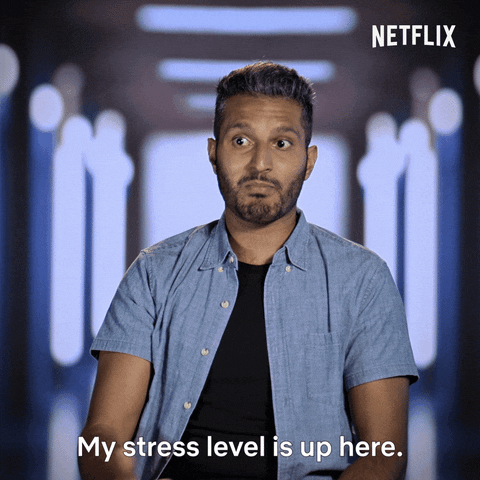
You want the absolute best possible education for your child
where do you begin?
This webinar will help you
how many other parents would get value from this webinar?
you probably already have a few folks in mindShare this page + invite them to register!
gather your squad and LEARN together
Clearing the Path
A Note from Samantha
Hello!I’ve spent my entire career in education—as a teacher, researcher, board member, improvement specialist, consultant, and strategist. After 20+ years helping schools, systems, and education organizations across the U.S. and around the world, I decided it was time for me to help parents.I've always been fueled by the resolve of my parents—they definitely went hard for us. They didn't have the kind of help that I now know they needed. And if you're reading this, then you're probably like my parents. You haven't had the help you needed ... until now.My grandparents had nothing more than a grade school education. My parents were the first in their families to graduate from high school. My two siblings and I all graduated from top colleges and universities. And I focused on studying policy and education at Duke and PennGSE because of the gross (and gross) inequities I witnessed and experienced. I wanted to shake up policy, smash systems, and transform education to serve every family well.More of my story later; I've created this space for you.Today, we live in a largely transformed and unrecognizable world. In these past few years, we've experienced a seismic shift in our collective and individual lives that has exacerbated the impact of: loss, isolation, systemic inequities, racial injustice, political upheaval, unspeakable violence, economic instability, and so much more. There's so much uncertainty.As parents of children of color—especially my first-time parents, my parents with younger children, my later-in-life parents—when it comes to your child's education and ensuring that you do everything within your power for them to soar, there's no playbook.Where do you struggle? What worries you? What keeps you up at night? You're looking for expert guidance, a trusted resource, a path to follow. You're playing the long game and you know ... that you don't know ... what you don't know!I've spoken with so many parents at all stages of their child's education journey who are asking questions like: What do I do next? How do I decide which schools are the best option for my child? What does "quality" or "good" mean? Where can I get the information I need? When is the right time to start planning? Will my child be valued? Will she be safe? Did I do enough research? What are my rights as a parent? What am I missing? Am I the only parent feeling like this?You are resourceful, determined, action-oriented, and can probably figure it out, eventually.
But ... you are not an education expert.
.
.
.
.
I know a little sumthin' sumthin' about education.
I got you.
I'm clearing the path for you to follow.And, I'm here to let you know that YOU can create your own playbook.
You'll first need the 3 steps that I'm going to teach you on the webinar—will I see you there?I can't wait to meet you!
— Samantha —
Over the Years
prior organizations and select collaborations
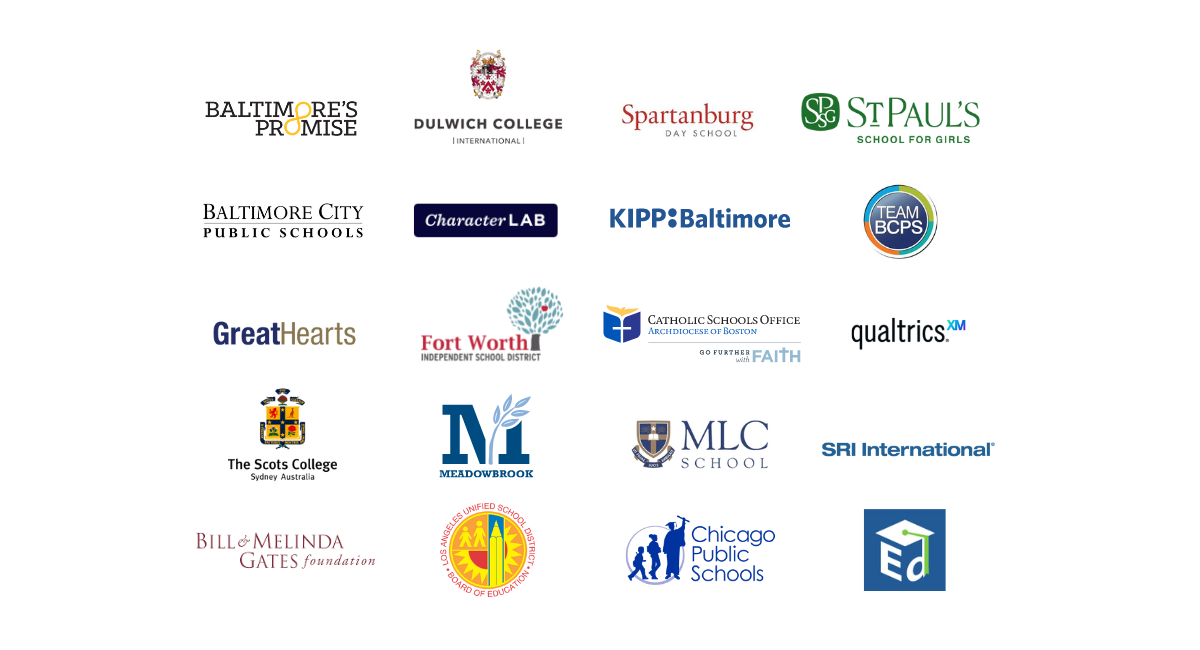
You're in!

Your registration confirmation email is on its way!IMPORTANT: Check your email to access your bonus and webinar replay.The email will come from Samantha A. Murray (info@samcatalysts.com)
Be sure to check your spam or promotions folder.share this webinar on Facebook or share this link with a friend
www.samcatalysts.com
FINALLY! I Know What To Do Next
3 Simple Steps to Point You in the Right Direction & Help You Confidently Plan Your Child’s Education
FREE WEBINAR FOR FAMILIES OF COLOR
Thursday, October 20, 2022
4pm PST | 7pm EST
JOIN Live with samantha A. Murray, MSEd
Founder & CEO

Success!
You'll Now be able to receive the replay and a special bonus.Share this webinar on Facebook or share this link with a friend
www.samcatalysts.com
Samantha A. Murray, M.S.Ed.
SAM Catalysts, Founder & CEO
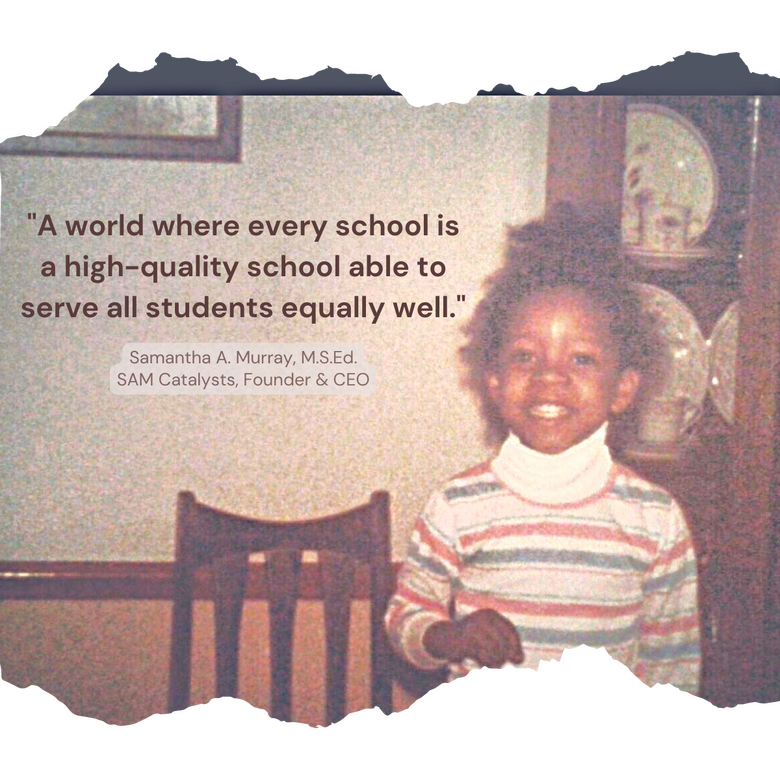
Hi, I’m Samantha 👋🏾Throughout my career, I've consistently seen school leaders across the globe grapple with 3 core questions ... often feeling the weight of metrics like NPS, satisfaction, enrollment, yield, and attrition heading in the wrong direction. Typically, but not always, these questions are front and center when schools are working on strategy/strategic planning and school improvement initiatives.1) Why do parents choose our school?
2) Why do parents stay at our school?
3) Why do parents leave our school?IS THIS FEELING FAMILIAR?I developed the Education Trajectory Framework™ to empower forward-thinking executive and senior school leaders like you to apply the theory of Jobs to Be Done to help you make progress. You will be able to uncover and discover parents' jobs to be done—and then know what to do with that insight. Pioneered by Clayton Christensen, Jobs Theory, when applied to K-12 education, helps you uncover the answer to those three core questions.I am recognized for my value as a thought partner.
You can schedule an introductory chat or book a 1:1 session with me.JOIN MY MAILING LIST
The SAM Catalysts virtual community will be the first to hear about new tools, resources, and learning opportunities—for school leaders AND for parents—when they become available.
PAGE IN PROGRESS ... please check back later
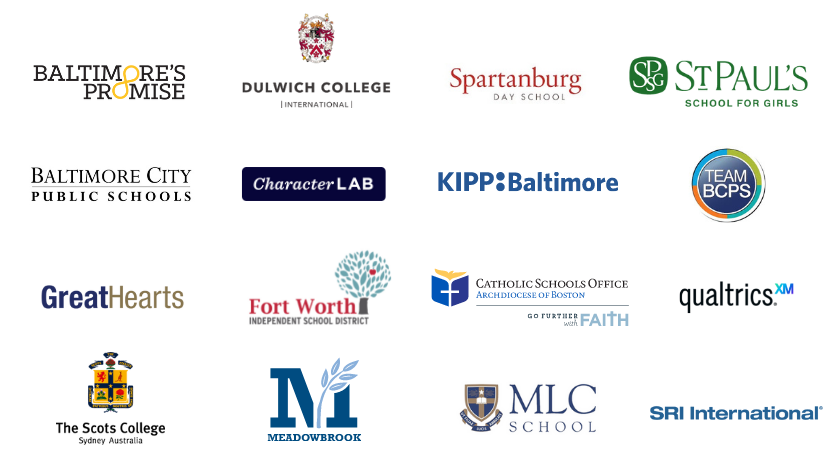
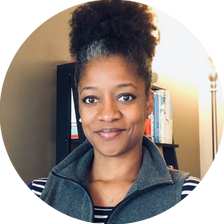
allow me to be your thought partner
"I always feel 10x smarter and more inspired after talking with you.
I'm not just saying that."
— Executive Director, national education nonprofit

Work 1:1
Single Sessions
Single sessions are ideal for when you want a thought partner to help you do some brain work on an as-needed basis. Sessions are typically generative and lead to new ways of thinking.You will have the opportunity to record your call.
Click below to book your session.
You will be taken to my Calendly page.
"Thank you for putting our experience at Woodlynde School in the context of parents' jobs to be done, Samantha. It throws the rebranding work into sharp relief for me and is making me think anew about my responsibility to parents as an independent school marketing and fundraising administrator."
— Christopher Kramaric, assistant head of school for external affairs
__4 Session Bundle __
Bundled sessions are ideal for when you want a thought partner to help you do some brain work for a sustained period of time. Sessions are typically generative and lead to new ways of thinking.Each session is 60 MinutesYou will have the opportunity to record your calls.
Click below to book your 4 sessions.
You will be taken to my Calendly page.
"Your insights have helped me learn and grow!"
— Dwan Pinamonti, baltimore county public schools principal
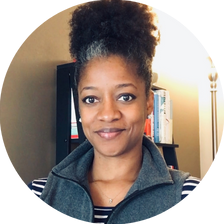
"Samantha is a big picture thinker and visionary."
— Global SVP, qualtrics
CliftonStrengths Assessment
my five most dominant themes - ranked
INPUT
People who are especially talented in the Input theme have a craving to know more. Often they like to collect and archive all kinds of information.
LEARNER
People who are especially talented in the Learner theme have a great desire to learn and want to continuously improve. In particular, the process of learning, rather than the outcome, excites them.
INTELLECTION
People who are especially talented in the Intellection theme are characterized by their intellectual activity—they like to think. They are introspective and appreciate intellectual discussions.
RELATOR
People who are especially talented in the Relator theme enjoy close relationships with others. They find deep satisfaction in working hard with friends to achieve a goal.
CONNECTEDNESS
People who are especially talented in the Connectedness theme have faith in the links between all things. They believe there are few coincidences and that almost every event has a reason.
Human Design System
i am a 4/6 splenic manifestor
Manifestors are somewhat rare, comprising less than 10 % of the world's population.Manifestors are here to initiate—to bring new ideas and concepts to the world.Manifestors are here to catalyze action.Manifestors are naturally innovative and can think outside of the box.
"This HBR article and Clayton's subsequent writings on the subject have fundamentally changed the way I look at personal and professional relationships. Appreciate the K-12 lens that you've put on this principle." Re: Jobs to Be Done theory
— Ryan Jolley, qualtrics K-12 enterprise executive
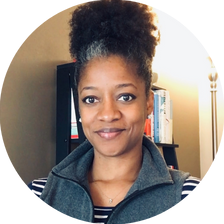
I'd love to hear from you!You're welcome to get in touch if you have a podcast or speaking request, or if you have a different collaboration idea.
join the sam catalysts virtual community to get a first look at new resources and learning opportunities when they become available.
Get notified about the next free parent webinar
Terms and conditions
BY VISITING SAMCATALYSTS.COM, YOU ARE CONSENTING TO OUR TERMS AND CONDITIONS
Overview
The terms “we,” “us,” and “our” refers to SAM Catalysts, LLC. The terms “user,” “you,” and “your” refer to site visitors, customers, and any other users of the site. The term “Service” refers to general information provided to permit you to learn more about our business, our coaching programs and services, our professionals, as well as information about education and education research, scholarship, and policy, and information about K-12 education in general.Use of https://www.samcatalysts.com, including all materials presented herein and all online services provided by SAM Catalysts, LLC, is subject to the following Terms and Conditions. These Terms and Conditions apply to all site visitors, customers, and all other users of the site. By using the Site or Service, you agree to these Terms and Conditions, without modification, and acknowledge reading them.
Use of the Site and Service
To access or use the Site, you must be 18 years of age or older and have the requisite power and authority to enter into these Terms and Conditions. Children under the age of 18 are prohibited from using the Site. Information provided on the Site and in the Service related to K-12 education and other information are subject to change. SAM Catalysts, LLC makes no representation or warranty that the information provided, regardless of its source (the “Content”), is accurate, complete, reliable, current, or error-free. SAM Catalysts, LLC disclaims all liability for any inaccuracy, error, or incompleteness in the Content.
Lawful Purposes
You may use the Site and Service for lawful purposes only. You agree to be financially responsible for all purchases made by you or someone acting on your behalf through the Site. You agree to use the Site and to purchase services or products through the Site for legitimate, non-commercial purposes only. You shall not post or transmit through the Site any material which violates or infringes the rights of others, or which is threatening, abusive, defamatory, libelous, invasive of privacy or publicity rights, vulgar, obscene, profane, or otherwise objectionable, contains injurious formulas, recipes, or instructions, which encourages conduct that would constitute a criminal offense, give rise to civil liability, or otherwise violate any law.
refusal of service
The Services are offered subject to our acceptance of your order or requests. We reserve the right to refuse service to any order, person or entity, without the obligation to assign reason for doing so. No order is deemed accepted by us until payment has been processed. We may at any time change or discontinue any aspect or feature of the Site or Service, subject to us fulfilling our previous responsibilities to you based on acceptance of your payment.
order confirmation
We will email you to confirm the placement of your order and with details concerning product delivery. In the event that there is an error in this email confirmation, it is your responsibility to inform us as soon as possible.
Cancellations, Refunds & Returns
Due to the live and virtual nature of this program, refunds are not given under any circumstance. Coaching, Group Programs, Webinars and Trainings are considered confirmed at the time of purchase. Space is limited in some of our service offerings. You may decide to cease to participate in our programs, however this will not warrant a refund of any kind.
Intellectual Property Rights To Your Materials
We claim no intellectual property rights over the material you supply to SAM Catalysts, LLC. You retain copyright and any other rights you may rightfully hold in any content that you submit through the Site or Service. Content you submit to SAM Catalysts remains yours to the extent that you have any legal claims therein. You agree to hold SAM Catalysts, LLC harmless from and against all claims, liabilities, and expenses arising out of any potential or actual copyright or trademark misappropriation or infringement claimed against you. By posting material on the Site or through the Service, you grant us a worldwide, nonexclusive, irrevocable license to use the material for promotional, business development, and marketing purposes.
Our Intellectual Property
The Site and Service contain intellectual property owned by SAM Catalysts, including trademarks, copyrights, proprietary information, and other intellectual property. You may not modify, publish, transmit, participate in the transfer or sale of, create derivative works from, distribute, display, reproduce or perform, or in any way exploit in any format whatsoever any of the Site or Service Content or intellectual property, in whole or in part, without our prior written consent. We reserve the right to immediately remove you from the Service, without refund, if you are caught violating this intellectual property policy.
Changed Terms
We may at any time amend these Terms and Conditions. Such amendments are effective immediately upon notice to you by us posting the new Terms and Conditions on this Site. Any use of the Site or Service by you after being notified means you accept these amendments. We reserve the right to update any portion of our Site and Service, including these Terms and Conditions, at any time. We will
post the most recent versions to the Site and list the effective dates on the pages of our Terms and
Conditions.
Limitation of Liability
YOU AGREE THAT UNDER NO CIRCUMSTANCES SHALL WE BE LIABLE FOR DIRECT, INDIRECT, INCIDENTAL, CONSEQUENTIAL, SPECIAL, PUNITIVE, EXEMPLARY, OR ANY OTHER DAMAGES ARISING OUT OF YOUR USE OF THE SITE OR SERVICE. ADDITIONALLY, [INSERT YOUR COMPANY NAME] IS NOT LIABLE FOR DAMAGES IN CONNECTION WITH (I) ANY FAILURE OF PERFORMANCE, ERROR, OMISSION, DENIAL OF SERVICE, ATTACK, INTERRUPTION, DELETION, DEFECT, DELAY IN OPERATION OR TRANSMISSION, COMPUTER VIRUS, OR LINE OR SYSTEM FAILURE; (II) LOSS OF
REVENUE, ANTICIPATED PROFITS, BUSINESS, SAVINGS, GOODWILL OR DATA; AND (III) THIRD PARTY THEFT OF, DESTRUCTION OF, UNAUTHORIZED ACCESS TO, ALTERATION OF, OR USE OF YOUR INFORMATION OR PROPERTY, REGARDLESS OF OUR NEGLIGENCE, GROSS NEGLIGENCE, FAILURE OF AN ESSENTIAL PURPOSE AND WHETHER SUCH LIABILITY ARISES IN NEGLIGENCE, CONTRACT, TORT, OR ANY OTHER THEORY OF LEGAL LIABILITY. THE FOREGOING APPLIES EVEN IF SAM CATALYSTS, LLC HAS BEEN ADVISED OF THE POSSIBILITY OF OR COULD HAVE FORESEEN THE DAMAGES. IN THOSE STATES THAT DO NOT ALLOW THE EXCLUSION OR LIMITATION OF LIABILITY FOR THE DAMAGES, OUR LIABILITY IS LIMITED TO THE FULLEST POSSIBLE EXTENT PERMITTED BY LAW. IN NO EVENT SHALL SAM CATALYSTS' CUMULATIVE LIABILITY TO YOU EXCEED THE TOTAL PURCHASE PRICE OF THE SERVICE YOU HAVE PURCHASED FROM SAM CATALYSTS, AND IF NO PURCHASE HAS BEEN MADE BY YOU SAM CATALYSTS’ CUMULATIVE LIABILITY TO YOU SHALL NOT EXCEED $100.
assingment
These Terms and Conditions bind and inure to the benefit of the parties’ successors and assigns. These Terms and Conditions are not assignable, delegable, sublicenseable, or otherwise transferable by you. Any transfer, assignment, delegation, or sublicense by you is invalid.
Updated: October 2022
privacy policy
BY VISITING SAMCATALYSTS.COM, YOU ARE CONSENTING TO OUR PRIVACY POLICY.
Overview
SAM Catalysts, LLC is committed to protecting your privacy online. This Privacy Policy describes the personal information we collect through this website at samcatalysts.com (the “Site”), and how we collect and use that information.The terms “we,” “us,” and “our” refers to SAM Catalysts, LLC. The terms “user,” “you,” and “your” refer to site visitors, customers, and any other users of the site. The term “personal information” is defined as information that you voluntarily provide to us that personally identifies you and/or your contact information, such as your name, phone number, and email address.Use of samcatalysts.com, including all materials presented herein and all online services provided by SAM Catalysts, LLC, is subject to the following Privacy Policy. This Privacy Policy applies to all site visitors, customers, and all other users of the site. By using the Site or Service, you agree to this Privacy Policy, without modification, and acknowledge reading it.
Information We collect
This Site only collects the personal information you voluntarily provide to us, which may include your full name, email address and message in order to contact us via our contact form.The information you provide is used to process transactions, send periodic emails, and improve the service we provide. We do share your information with trusted third parties who assist us in operating our website, conducting our business and servicing clients and visitors. These trusted third parties agree
to keep this information confidential. Your personal information will never be shared with unrelated third parties.
Activity
We may record information relating to your use of the Site, such as the searches you undertake, the pages you view, your browser type, IP address, requested URL, referring URL, and timestamp information. We use this type of information to administer the Site and provide the highest possible level of service to you. We also use this information in the aggregate to perform statistical analyses of user behavior and characteristics in order to measure interest in and use of the various areas of the Site.
cookies
We may send cookies to your computer in order to uniquely identify your browser and improve the quality of our service. The term “cookies” refers to small pieces of information that a website sends to your computer’s hard drive while you are viewing the Site. We may use both session cookies (which expire once you close your browser) and persistent cookies (which stay on your computer until you delete them). You have the ability to accept or decline cookies using your web browser settings. If you choose to disable cookies, some areas of the Site may not work properly or at all.
third party links
The Site may contain links to third party websites. Except as otherwise discussed in this Privacy Policy, this document only addresses the use and disclosure of information we collect from you on our Site. Other sites accessible through our site via links or otherwise have their own policies in regard to privacy. We are not responsible for the privacy policies or practices of third parties.
security
We maintain security measures to protect your personal information from unauthorized access, misuse, or disclosure. However, no exchange of data over the Internet can be guaranteed as 100% secure. While we make every effort to protect your personal information shared with us through our Site, you acknowledge that the personal information you voluntarily share with us through this Site could be accessed or tampered with by a third party. You agree that we are not responsible for any intercepted information shared through our Site without our knowledge or permission. Additionally, you release us from any and all claims arising out of or related to the use of such intercepted information in any unauthorized manner.
children
To access or use the Site, you must be 18 years old or older and have the requisite power and authority to enter into this Privacy Policy. Children under the age of 18 are prohibited from using the Site.
visitors' gdpr rights
According to the GDPR a “data subject” is defined as an identifiable natural person. A natural person is one who can be identified, directly or indirectly, in particular by reference to an identifier such as: a name, an identification number, location data, or online identifier. Alternatively, they may be identified by reference to one or more factors specific to the physical, physiological, genetic, mental, economic, cultural, or social identity of that natural person. A data subject may be of any age or nationality.As a data subject, within the European Union, you are entitled to certain rights under the General Data Protection Regulation (GDPR). Those rights include:
You have the right to be informed with respect to your personally identifiable information (PII) retained by the Company. As such, you may request access to your data that the Company stores and the rights to either correct or erase your personal data.
We will retain any personally identifiable information you choose to provide to us unless: (a) you request for us to delete the information, (b) we stop using our existing data providers, or (c) at Company’s discretion, we decide to remove the data.
You have the right to seek restrictions on the processing of your data.
You have the right to object to the processing of your data and the right to the portability of your data.
You have the right to withdraw consent provided to the Company concerning the processing of your personal data, as well as the right to withdraw that consent at any time, without affecting the lawfulness of processing based upon consent that occurred prior to your withdrawal of consent.
You have the right to not be subjected to automated decision-making via pre-ticked boxes, additions to our email marketing lists and the like.
You have the right to lodge a complaint with a supervisory authority that has jurisdiction over issues related to the General Data Protection Regulation.
We require only the information that is reasonably required to enter into a contract with you. We will not require you to provide consent for any unnecessary processing as a condition of entering into a contract with us by way of downloading a lead magnet, webinar, freebie or any other traditional list building methods.
updating your information
You may access and correct your personal information and privacy preferences by contacting us via email at info@samcatalysts.com.
changes to this policy
You acknowledge and agree that it is your responsibility to review this Site and this Policy periodically and to be aware of any modifications. We will notify you of any changes to this privacy policy by posting those changes on this page.
contact
If you have questions about our privacy policy, please email us at info@samcatalysts.com.
Updated: July 2022

